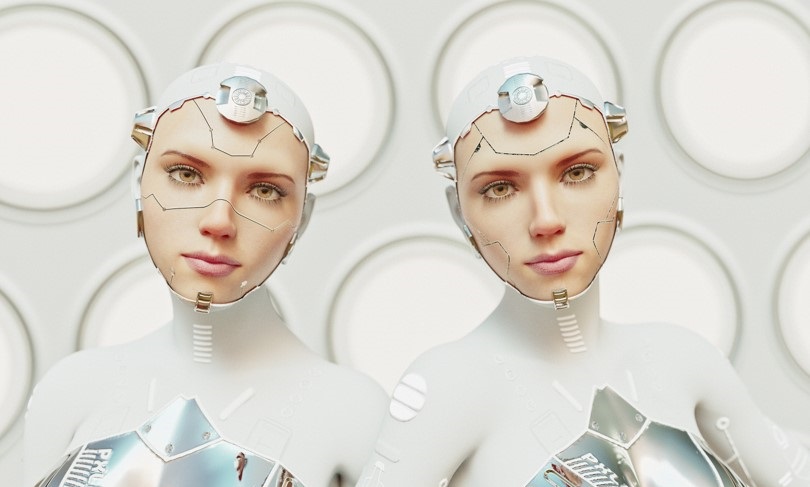
While browsing LinkedIn, I recently came across a post referencing a Forbes article about “How AI is killing the Harvard MBA“. The comments highlighted generative AI’s power to analyze and synthesize large volumes of information as well as its value in generating various business content. Implicit in this discussion was the idea that AI, and particularly generative AI, lacks the nuanced abilities often considered unique to humans—like empathy, ethical judgment, and interpersonal skills. But is this assumption justified? What if we reframed this narrative and explored how AI might actually contribute to our understanding of humanity?
Understanding humanity
Humanity encompasses qualities like self-awareness, empathy, moral reasoning, creativity, adaptability, and a capacity for growth. Real-life examples, such as volunteer efforts during natural disasters, showcase humanity’s capacity for compassion and resilience. During crises like Hurricane Katrina or the earthquake in Haiti, people often band together to help those affected, reflecting our shared drive to care for one another.
In our day-to-day lives, humanity reveals itself in our interactions, decisions, and connections with others. Small acts of kindness—helping a stranger with their groceries, offering support to a colleague, or checking in on a friend—illustrate our ability to empathize and connect. In the workplace, humanity is expressed through communication, collaboration, and respect for individuality. Leaders who demonstrate empathy create environments where employees feel valued, while teams that operate on mutual respect and open dialogue foster creativity and trust, transforming workplaces into spaces of shared purpose and genuine connection.
Shifting the perspective on GenAI
What if we shifted our view of generative AI, looking beyond its data processing capabilities to examine its potential to enhance our understanding of humanity? By approaching GenAI from this angle, we might find valuable insights. Generative AI could deepen our understanding of human behavior by reflecting both its beauty and complexity. In interactions with AI, users may become more aware of their biases, values, and communication styles, prompting self-reflection and empathy. For instance, AI can simulate conversations that stress the importance of qualities like patience, active listening, and emotional intelligence—skills central to human connection.
Moreover, AI can foster empathy and cross-cultural understanding by presenting diverse perspectives in a neutral, unbiased format. In educational simulations, AI can create scenarios that require users to consider ethical dilemmas or practice compassion in communication, prompting deeper reflection on empathy, fairness, and respect. By recognizing patterns in human behavior, AI can act as a mirror, encouraging us to examine our attitudes and the effects of our actions on others.
In essence, generative AI helps us learn about humanity by mirroring our behavior and communication styles. By generating responses based on vast datasets, AI provides a synthesized view of human experiences that highlights embedded biases, communication styles, and values, allowing us to reflect on our beliefs and assumptions. AI’s ability to simulate a wide range of scenarios also helps us appreciate the depth of human responses and emotions, fostering empathy as we encounter perspectives beyond our own.
Bridging science and technology
Combining insights from psychology, sociology, anthropology, and behavioral economics with large language models offers a unique opportunity to model and enhance our understanding of humanity. This combination could lead to improved personal growth, enriched work-life dynamics, and a deeper comprehension of the nuances of human behavior and interaction, ultimately fostering a more compassionate society.
As we consider the future, the potential to learn more about humanity through generative AI invites us to embrace curiosity, adapt to new technologies, and work alongside developers and researchers. By harnessing these capabilities, we can view humanity as a vital asset in both personal development and professional settings. This integration of technology and human insight not only strengthens individual growth but also fosters stronger community bonds and deeper understanding.
Practical applications at LessonLab
At LessonLab, we are actively developing educational AI simulations that bring these principles to life. Our simulations present users with scenarios that require navigating complex interpersonal dynamics, such as addressing performance issues with underperforming employees, communicating major organizational changes to teams with diverse individuals, or negotiating with customers with specific objectives. These interactive experiences are rooted in theoretical models of human behavior, allowing users to practice essential soft skills like empathy, active listening, and effective communication. By engaging in these simulations, individuals can gain valuable insights into their own behaviors and learn how to connect more meaningfully with others.
If you’re interested in exploring this further and seeing how our simulations can enhance your understanding of humanity and improve your interpersonal skills, please reach out to us. Together, we can navigate the intersection of generative AI and humanity, shaping a future where technology enriches our human experience.
For more information, explore our site or contact us.
Author

Perttu Dietrich, Ph.D., CEO, LessonLab Oy











